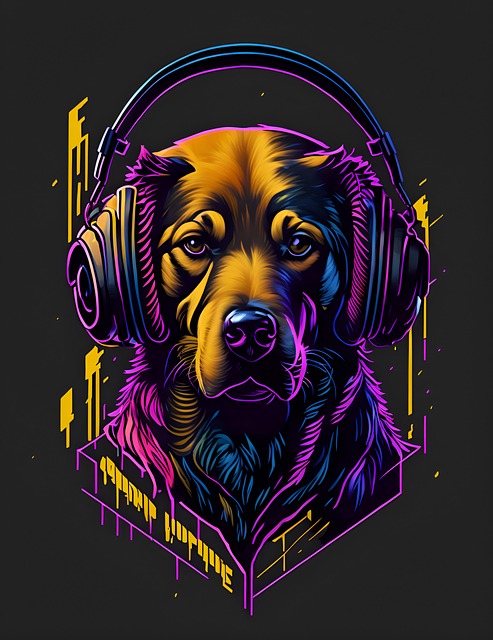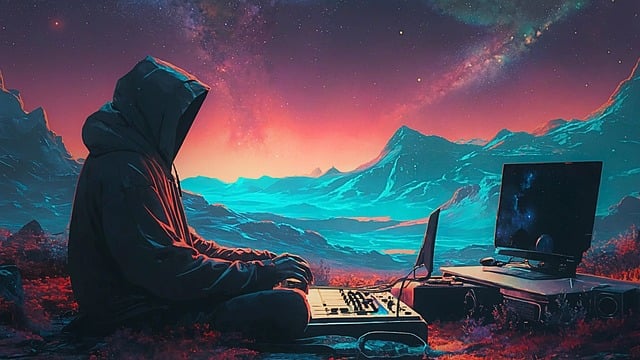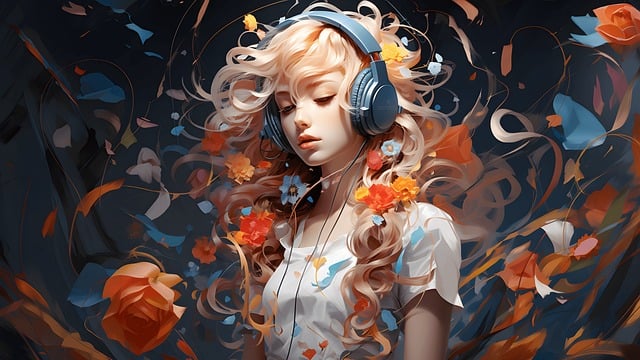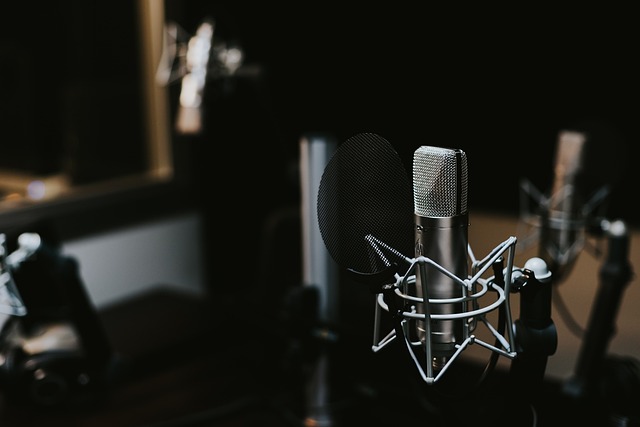https://aiode.com/product are revolutionizing the creative process for musicians and producers, offering unprecedented opportunities for artistic expression through machine learning algorithms that generate unique melodies, harmonies, and compositions from vast musical datasets. These advanced technologies break free from traditional composition methods, enhance productivity, encourage experimentation, and foster collaboration, pushing the boundaries of musical possibilities. As AI advances, it promises to democratize music production globally, while requiring ethical considerations around authorship, originality, and human artistry.
“Dive into the dynamic world of AI music tools, revolutionizing the creative landscape for musicians and producers. This blog serves as a comprehensive guide, exploring the transformative power of artificial intelligence in music composition, production, and design. From unlocking innovative sounds to streamlining workflows, AI is reshaping the industry. Discover how these tools offer unique effects, powerful software, and ethical insights, all while fostering creativity and efficiency. Uncover the potential of AI music tools that are redefining artistic expression.”
- Unlocking Creativity: AI's Role in Music Composition
- The Future of Music Production: AI-Powered Software
- Enhancing Sound Design: AI for Unique Musical Effects
- Streamlining Workflows: AI Assistants for Musicians
- Ethical Considerations and the Impact on the Music Industry
Unlocking Creativity: AI's Role in Music Composition

AI music tools are revolutionizing the creative process for musicians and producers, unlocking new avenues of artistic expression. These advanced technologies have the ability to generate unique and captivating melodies, harmonies, and even entire compositions, offering an endless wellspring of inspiration. By leveraging machine learning algorithms, AI models can analyze vast musical datasets, learn from diverse styles, and produce original content tailored to individual preferences.
For musicians, this means breaking free from traditional composition methods and exploring uncharted sonic territories. AI tools can suggest creative directions, provide instant feedback, and offer a collaborative partner in the studio. From generating initial ideas to refining complex arrangements, these intelligent systems enhance productivity and foster experimentation, pushing the boundaries of musical possibilities.
The Future of Music Production: AI-Powered Software

The future of music production is here, and it’s powered by artificial intelligence (AI). AI music tools are rapidly transforming the way musicians create and produce their art. These innovative software solutions offer an array of capabilities, from generating melodies and harmonies to automating repetitive tasks like mixing and mastering. By leveraging machine learning algorithms, AI music tools can analyze vast datasets of existing music to learn patterns and styles, enabling them to assist musicians in crafting unique compositions that push creative boundaries.
As AI continues to evolve, its impact on the music industry will only grow. Musicians can expect more sophisticated AI music tools that better understand human artistic expression. These tools will facilitate faster production times, allow for greater experimentation, and open up new avenues for collaboration between humans and machines. In essence, AI is democratizing music production, empowering creators with powerful resources that were once accessible only to a select few.
Enhancing Sound Design: AI for Unique Musical Effects

AI music tools are transforming sound design, empowering musicians and producers to create unique, otherworldly effects. By leveraging machine learning algorithms, these tools can analyze vast libraries of sounds, identify patterns, and generate entirely new audio elements that would be time-consuming or impossible to achieve through traditional methods. From ethereal ambient textures to glitchy, experimental noises, the possibilities are endless for musicians looking to push creative boundaries.
These AI music tools offer a level of customization and experimentation that was previously reserved for specialized sound designers. With intuitive interfaces and powerful features, musicians can quickly prototype and iterate on their ideas, spending more time crafting their art than navigating complex software. Whether enhancing existing tracks or serving as a source of inspiration for new compositions, AI music tools are revolutionizing the way we think about and create sound effects in the digital age.
Streamlining Workflows: AI Assistants for Musicians

Music production has evolved significantly with the advent of artificial intelligence (AI) music tools, revolutionizing workflows for musicians and producers alike. AI assistants are now an integral part of many creative processes, offering efficient solutions to time-consuming tasks. These tools can generate melodies, suggest harmonies, and even compose entire tracks, providing a vast library of musical ideas at the musician’s fingertips.
With their advanced algorithms, AI music tools analyze patterns and styles from existing music, enabling musicians to quickly explore new creative directions. This not only speeds up production time but also opens doors to innovative collaborations and unique artistic expressions. By streamlining workflows, AI assistants empower musicians to focus on their creativity and intuition, pushing the boundaries of what’s possible in modern music production.
Ethical Considerations and the Impact on the Music Industry

The rise of AI music tools has sparked exciting possibilities for musicians and producers, offering unprecedented access to creative resources. However, it’s crucial to navigate this technological landscape with ethical considerations in mind. As AI becomes more integrated into music production, questions arise about authorship, originality, and the potential displacement of human creativity. The music industry must strike a balance between embracing innovation and preserving the value of human artistry.
AI music tools have the power to democratize music creation, making it accessible to a broader range of individuals. However, ensuring proper attribution and crediting for AI-generated content is essential. With these tools, musicians can explore new sounds and streamline their workflows, but it’s vital to respect existing intellectual property rights and foster a culture that supports both human and artificial creativity.
In conclusion, AI music tools are transforming the creative landscape for musicians and producers. From composition to sound design and workflow optimization, these technologies offer unprecedented opportunities for artistic expression. As we look towards the future, embracing AI responsibly can help foster innovation while respecting traditional musical practices. By staying informed about ethical considerations, the music industry can harness the power of AI music tools to unlock new levels of creativity and enhance the overall listening experience for fans worldwide.
